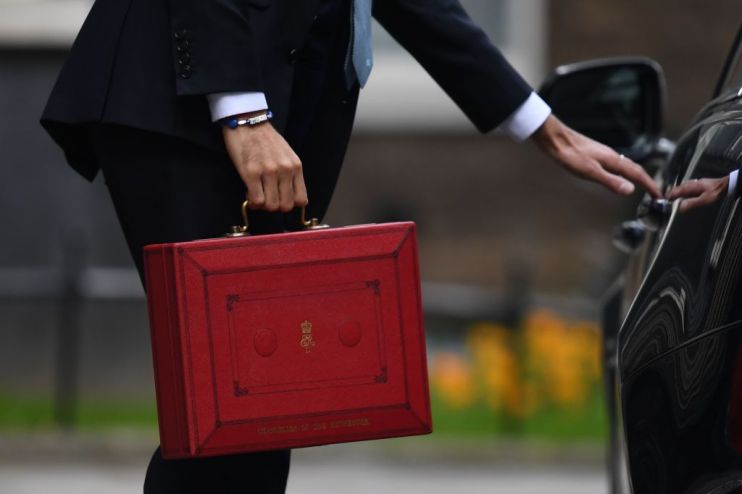Budget 2020: Borrowing to jump while economy slows

Chancellor Rishi Sunak’s Budget splurge will put a rocket under government borrowing, the UK’s spending watchdog said today in forecasts that do not include the economic hit from coronavirus.
The government is now set to borrow close to £100bn more over the next four years than it planned to just a few months ago, the Office for Budget Responsibility (OBR) said.
Sunak announced a major stimulus package that sets aside £12bn in 2020-21 to deal with the economic fallout from coronavirus and £18bn of other extra spending.
The chancellor’s pledges amounted to “the largest Budget giveaway since 1992,” the OBR said. Sunak announced significant rises in capital and day-to-day spending over the coming years, closing the 10-year chapter of Conservative austerity and heralding a new, interventionist approach to fiscal policy.
In its economic analysis that accompanies the Budget, the OBR downgraded its growth forecasts for all but one of the coming four years.
However, its forecasts were finished before coronavirus cases in the UK spiked. OBR director Robert Chote said the predictions do “not reflect the recent news on the spread of coronavirus or the policy response from the Bank and the Treasury, and thus looks too optimistic in the near term at least”.
The OBR said growth this year would fall to 1.1 per cent, down from 1.4 per cent in its forecast last year. However, Deutsche Bank has predicted coronavirus disruption could knock growth down to 0.5 per cent this year.
Chote said Sunak’s Budget stimulus measures would give the economy “a bit of a sugar rush in 2021”, taking growth to 1.8 per cent, compared to an original 1.6 per cent prediction.
But he said growth will be “slightly weaker on average over the full five years” due to policy decisions such as leaving the EU’s single market – and the resultant lower migration – taking an economic toll.
Sunak dodged a decision over the government’s fiscal rules – which say day-to-day spending must be balanced in three years – after much speculation he would change them. He said he will consult experts and report back in the autumn.
Ben Lord, co-manager of the M&G Corporate Bond Fund, said the rules are likely to change as the current forecasts that they will be met “are highly questionable and optimistic”.
On a day notable for the absence of right-wing backlash against higher spending, the director of the Centre for Policy Studies think tank Robert Colvile gently reminded the government of the “need to live within its means and to raise GDP growth”.